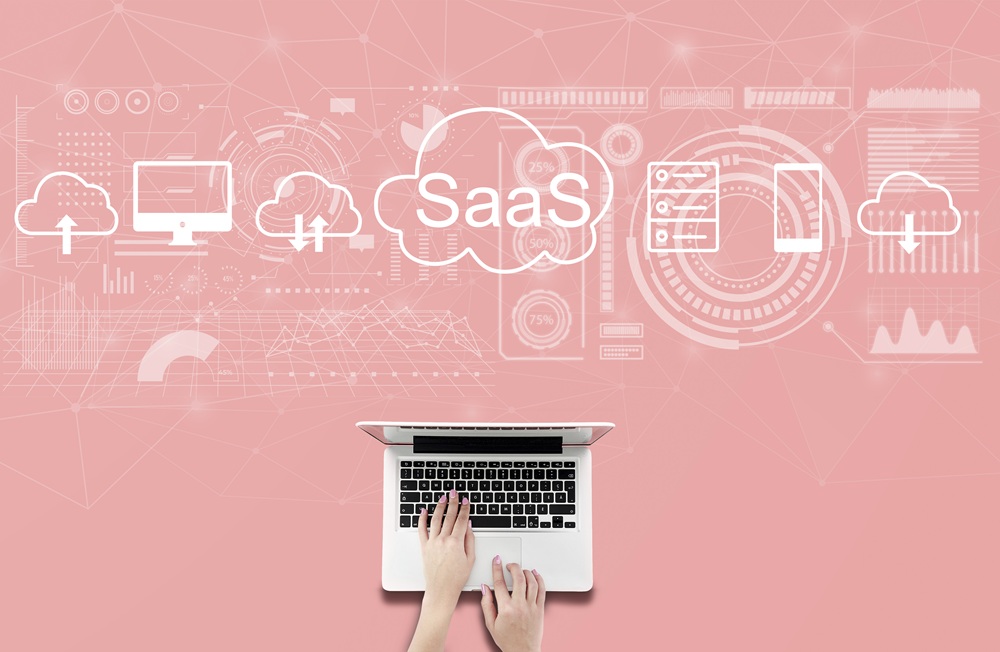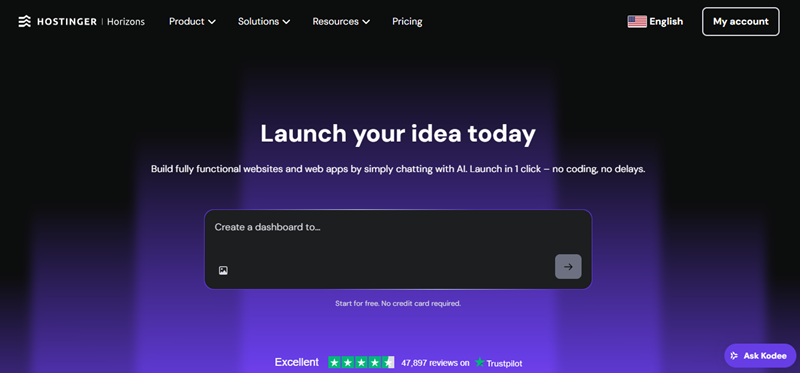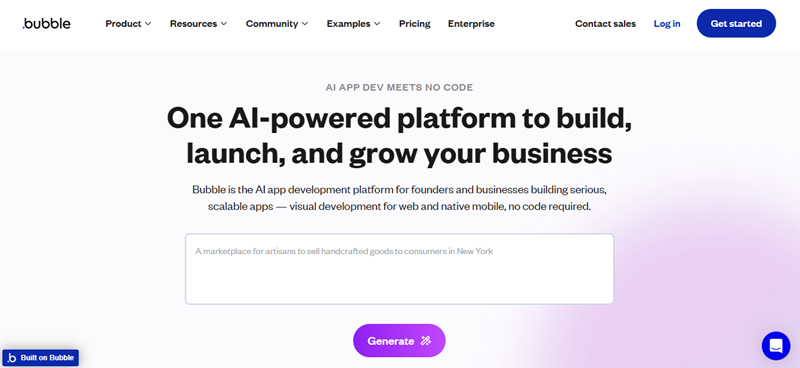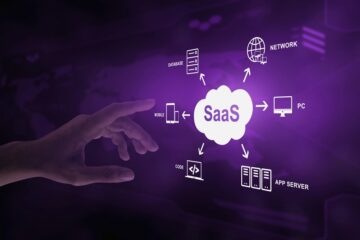The micro-SaaS market is booming. The idea of building a niche-focused software-as-a-service (SaaS)—with low costs and high scalability—has attracted entrepreneurs across the board. And with advances in artificial intelligence (AI), there are even more opportunities for innovation, automation, and value creation with lean teams.
In this article, we’ll explore the best tools for creating an AI-powered micro-SaaS, with a special focus on Hostinger Horizons and Bubble—two platforms that are helping developers and founders worldwide bring their ideas to life.
Tópicos
What is a Micro‑SaaS?

Before diving into tools, it’s important to understand the concept. A micro-SaaS is a small-scale SaaS product, typically built and maintained by one person or a small team, aimed at solving specific niche problems. Its advantages include low operating costs, independence, and recurring revenue potential.
With AI integration, these products become even more powerful—whether it’s through task automation, predictive insights, or personalized user experiences.
1. Hostinger Horizons – Unified AI + Infrastructure

Hostinger, globally known for its affordable and high-performance hosting services, recently launched Hostinger Horizons — an all-in-one platform designed for creators of SaaS, microsites, and AI-powered applications.
Why choose Horizons?
Complete infrastructure
Horizons offers optimized servers to run web applications and backends that require intensive use of AI resources. You can scale effortlessly without having to worry about the technical side of hosting.Built-in AI capabilities
The key differentiator is the native integration with AI tools, such as code generation, content assistants, email automation, and even ready-to-use APIs with language models. If you’re building, for example, a SaaS for generating legal texts or data analysis, Horizons already provides that foundation.Easy deployment
With just a few clicks, you can publish your application, connect a domain, set up a database, and monitor performance — all through an intuitive interface.Cost-effective
Hostinger’s focus on individual entrepreneurs and small businesses makes Horizons an affordable option for those just starting out—without compromising on performance.
AI use cases on Horizons:
- Automated chatbots;
- AI-generated e-commerce content;
- Predictive dashboards;
- Virtual admin assistants.
| 30 messages per month, free hosting for 1 year, free domain, 5 email accounts per site, 24/7 online support | $6,99/mo | Get Offer |
2. Bubble – Build Without Code

Bubble is one of the leading players in the no-code movement, allowing anyone to build fully functional web applications without writing a single line of code. It’s especially useful for MicroSaaS founders who want to quickly validate ideas or launch MVPs with rich features.
Why Bubble shines for AI micro-SaaS:
Visual app builder
You can drag and drop elements, set up business logic, and integrate APIs — all through an intuitive interface. This speeds up development and reduces the need for developers.Integrates easily with AI APIs
With Bubble, you can easily integrate services like OpenAI, Stability AI, Hugging Face, Cohere, and more. You can create a SaaS that generates images, answers questions, classifies text, or predicts trends with just a few configurations.Built-in database
Bubble provides a built-in database, making it easy to store and retrieve user data — an essential feature for any SaaS product.User auth & payments
Login, user management, Stripe subscriptions, and plan management are available natively or through plugins.
AI use cases on Bubble:
- AI‑powered resume builder;
- Sentiment analysis tools;
- Personalized marketing email generators;
- Content optimizers for blogs and socials.
 | Custom domain, version control for your app, process automation, editor for 1 app, 24/7 online support | $29,00/mo | Get Offer |
Other Tools to Round Out Your Stack
Although Hostinger Horizons and Bubble are solid pillars, other tools can help you build and operate your AI-powered MicroSaaS more efficiently:
🧠 OpenAI / Anthropic / Cohere
Natural language services that enable features such as text generation, automatic summarization, translation, data classification, and even automated decision-making.
🔧 Make (ex-Integromat) or Zapier
Automate workflows between different services. For example, when a new user registers on your SaaS, you can automatically send a personalized email using AI and save the data in your CRM.
📈 Google Analytics + Hotjar
Monitor user behavior and validate whether your product is truly solving the intended problem.
🎨 Figma + Uizard
To design the interface and prototype your idea even before starting development.
Strategy to Launch Your AI Micro‑SaaS
Identify a niche with a clear problem
Choose a market where you have some knowledge or direct access to the target audience.Validate with an MVP
Use Bubble to quickly create a functional prototype and test it with real users. You can do this in less than a week.Implement AI functionally, not just for hype
Choose AI models or APIs that truly add value to the user experience. Avoid using AI just to appear innovative.Host with scalability in mind
When scaling or moving your MVP to production, use Hostinger Horizons to ensure stability, technical support, and performance.Implement feedback and continuously improve
The feedback loop is essential to adapt the product to the real needs of your customers.
Conclusion
Building an AI-powered micro-SaaS has never been more feasible. With tools like Hostinger Horizons for scalable AI hosting and Bubble for fast no-code development—you can take an idea to a scalable business with minimal resources.
The key is focusing on a real problem, building fast, validating with users, and evolving based on data. AI accelerates your journey—but the real game-changer is how you apply it to solve actual problems.
Thinking of launching your digital venture? Go for it—your creativity is the only limit.
[Post updated on 01/14/2026]


0 Comments